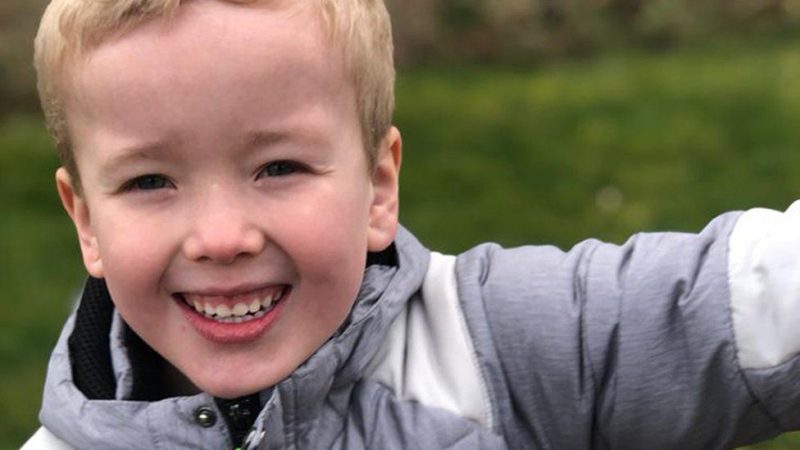
During the sixth minute of football matches played across the country last weekend, the crowds for both teams stood and applauded. Screens in the stadiums were showing an image of Arthur Labinjo-Hughes, the six-year-old boy murdered by his step-mother who was wilfully assisted by his father. The caption read: “You are loved.”
Such moments of symbolic unity in the face of unbearable evil can be comforting, offering communal solidarity. It was powerful. But anyone with knowledge of social services, the care sector and how we treat vulnerable children could not help but feel that the moment was also a little awkward. Too often, such children are not loved, but discarded with little hope and no support.
The Children Act 1989 places a statutory duty on local authorities to promote and safeguard the welfare of children in their area. Yet local authorities have been subject to deep cuts over the last decade. Government funding for children’s services fell by £2.2bn between 2010 and 2019. At the same time, the number of children being taken into care or requiring social service support has increased dramatically. There were 15,710 more children taken into care in England last year than in 2010.
Austerity has had a fundamentally brutal effect on services and the most vulnerable who relied upon them. 32% of children who come to the attention of social services report domestic violence between their parents, yet the Tories have overseen a lack of proper investment in housing and refuges across the country. Parental mental health is another recurring catalyst for children to require help from a local authority, yet investment in mental health services has been underfunded. Alcohol and drug misuse are often a root cause of troubled families, yet the Tories have cut spending on drug and alcohol addiction services.
The delegation to local authorities combined with deep but uneven cuts to their budgets has further led to a postcode lottery in child protection. As a lawyer often working in child protection, I am confident that if Arthur had been living in some boroughs of London, he would be alive today. Across the country, I see vastly different qualities in child protection services. Central government must, to coin a phrase, ‘level up’ resources and standards, dramatically and urgently.
The cuts and lack of resource leaves social workers exhausted, often lacking in capacity to undertake proper investigations to concerns. I work with social workers regularly, and far too many are finding it difficult to remain in the profession. It is not merely that they themselves are struggling as a result of the high volume of caseloads, stress and negative working environment, but they are frustrated because a lack of capacity makes it more difficult for them to undertake actual social work, as opposed to dealing with one crisis after the next or being overwhelmed with paperwork. A survey conducted in 2020 found that 39% of social workers expected to leave the profession within the next five years, with the most common reason being high workload. They must feel more valued – not only monetarily, but as a profession.
Social work and workers need to be given more emphasis by government. How often do we hear about a government initiative to improve the standards for and in our social work profession, or how best to recruit more and better social workers, or measures to ensure diverse candidates (only 14% of children social workers are men) for social work jobs? We cannot, as a nation, have moments of deep mourning in tragedy, then watch the issue slowly slip down the list of the priorities until the next death.
Equally, once a child is placed in care, our society appears broadly uncaring. If, say, Arthur had been separated from his step mother and father before his death, and put into foster care (in the hypothetical absence of suitable familial carers), statistics suggest his life prospects would be markedly poorer than a child raised at home. Adults who spend time as children in the care system are almost twice as likely to die prematurely. Care leavers represent 25% of the adult prison population, despite less than 1% of under 18s entering the care system each year. Only 6% of care leavers go to university, compared to 43% of the general population. 25% of those who are homeless have been in care at some point in their lives.
Our country lets down vulnerable children. In the context of these numbers, can we truly say “you are loved” to children in care? As a society, are we doing enough for children who, through no fault of their own, are put into the care of the state? The answer must be ‘no’.
To its credit, the government has launched an ‘independent review of children’s social care’, which is to report next year. It is led by the impressive Josh McAllister, who founded Frontline, a social enterprise recruiting and training social workers. This will be an important piece of work that will undoubtedly offer fundamental and practical reforms leading to better outcomes.
But let us never forget that, despite all the Johnsonian rhetoric to the contrary, the innate Conservative desire to ‘roll back the state’, to cut investment and let people fend for themselves, for many troubled families, will lead to chaos and, for some, tragedy.




More from LabourList
‘The Sherriff of Wild Westminster: what must change in elections bill’
‘The hope that kills you’: Reflections from the final day in Gorton and Denton
MPs, union leaders and organisations react to ‘bruising’ Gorton and Denton result